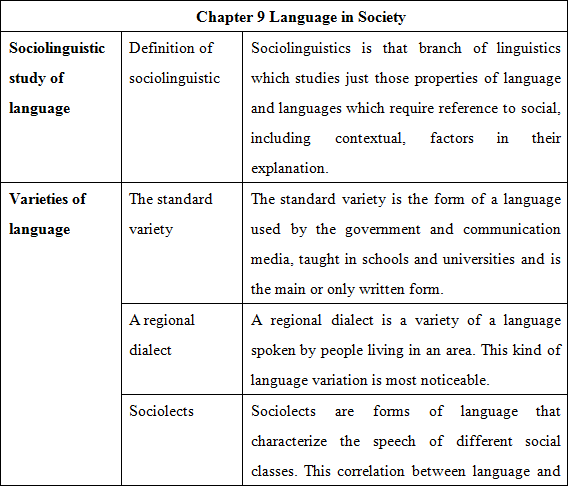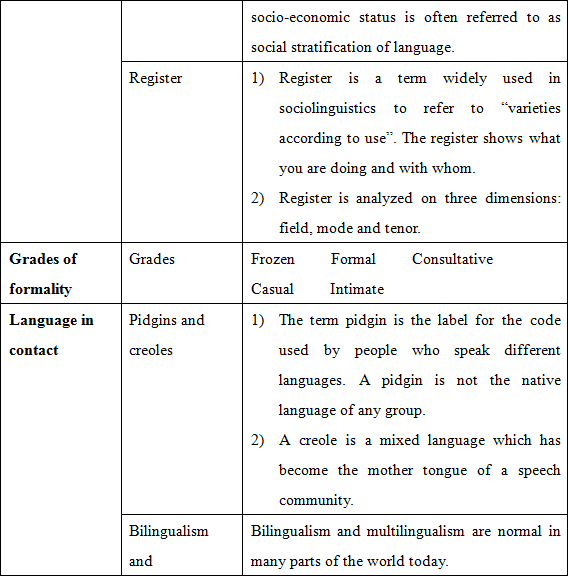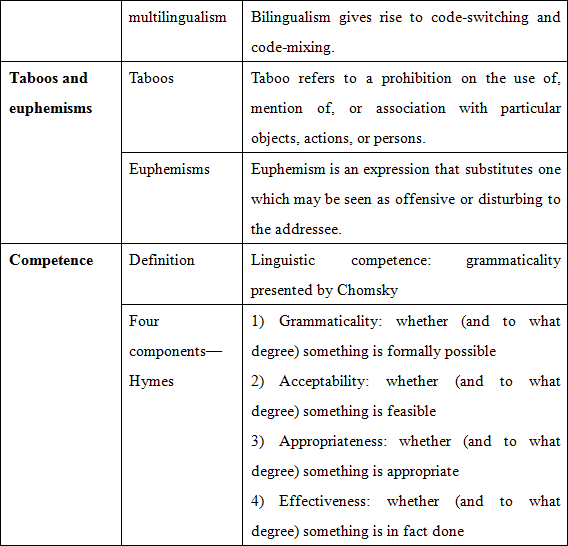课前准备:
预习第九章,结合自己实际情况,标记出比较难理解的地方。
教师导引:结合学生在英语学习与交流的经历,让学生试着谈论自己对相关术语的理解。
小贴士:是否在自身语言的学习过程中,思考过本章的某些内容?通过本章内容的阅读,自己对语言和社会的关系有了哪些新的认识?
小试牛刀
What is register?
参考答案:
Register is a term widely used in sociolinguistics to refer to “varieties according to use”, in contrast with regional dialects and socialects, both of which are “varieties according to user”. Dialect shows who you are and where you are from. The register shows what you are doing and with whom.
Register is analyzed on three dimensions: field, mode and tenor. Field is concerned with the purpose and subject-matter of communication; mode refers to the means by which communication takes place, through speech and writing. Tenor depends on the relations between the participants.
Field is concerned with why and about what we communicate; mode is related to how we communicate; tenor is about with whom we communicate. All the three dimensions function simultaneously in determining the variety of language in use.
学习目标
重点
Variety, the standard variety, regional (geographical) dialects, sociolects (social dialects), registers (functional dialects)
Dialect and accent
Grades of formality: frozen, formal, consultative, casual, and intimate
Pidgin and Creole
Bilingualism and multilingualism
Code-switching and code-mixing
Taboo and euphemism
难点
Sapir-Whorf Hypothesis
Linguistic competence and communicative competence
知识结构




